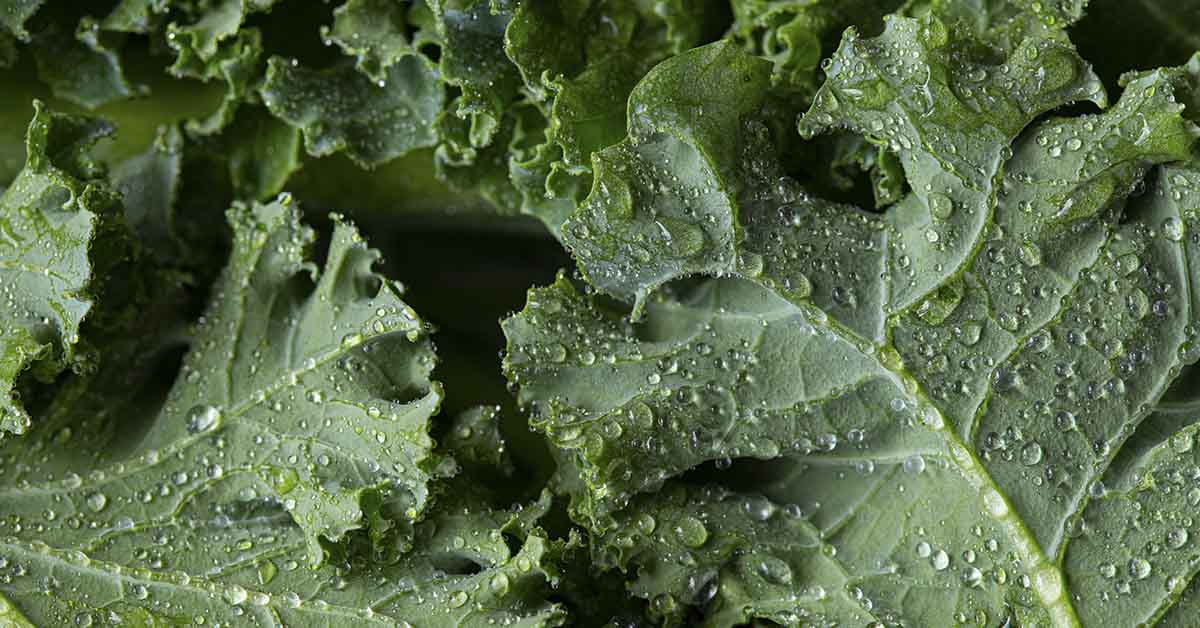Kale is an extraordinarily nutritious food. It is high in fiber and also vitamins A, C, B-6, and K. Kale is high in minerals like iron, calcium, copper, potassium, and magnesium. Kale also contains powerful antioxidants like quercetin. Though kale is extremely nutritious, there is a such thing as too much kale. There are two reasons for this. (1)
Why Too Much Kale Is Not Healthy: Antinutrients
Kale is extremely nutritious, but you can have too much of a good thing. There are a couple of reasons for this. The first of these is because Kale is high in an antinutrient known as oxalic acid. (2)
What are antinutrients, exactly? Antinutrients are substances that inhibit the absorption of nutrients from your food. They prevent certain minerals from being absorbed by the body, leading to a deficiency in those minerals. Kale and other cruciferous vegetables contain high amounts of oxalic acid, which is naturally occurring in plants due to their calcium structures. This makes it difficult for humans to absorb calcium and other essential vitamins and minerals when eating too much kale or other cruciferous vegetables like broccoli or cabbage.
What problems can oxalic acid cause?
Oxalic acid can bind with calcium and iron in the digestive tract, preventing their absorption into the body. This can lead to a deficiency of these important nutrients, especially if you have an already low intake of them. Long-term oxalic acid consumption is also associated with kidney stones due to its role in binding calcium in urine.
Why Too Much Kale Is Not Healthy: Allergies
The second reason that eating too much kale isn’t good for you is because you could develop an allergy to it. This could also cause you to develop an allergy to other cruciferous vegetables. Beyond just cruciferous vegetables, this can happen with nearly any food if you eat it too much. (3)
In recent years, there has been a large rise in allergies reported in industrialized countries. Why? It is believed that the increase in allergies is due to changes in our environment and immune system development. The rise in allergies has been linked to improvements in hygiene, sanitation, and nutrition over the past century. These changes have reduced our exposure to certain germs that used to help build up our immune systems in early childhood.
The symptoms of a kale/cruciferous vegetable allergy include: itchy skin, hives, mild swelling of the lips, tongue and throat, and sneezing. The symptoms of a kale/cruciferous vegetable allergy can range from mild to severe. Severe reactions may include swelling of the lips or tongue, difficulty breathing, lightheadedness or fainting. If you have any of these symptoms after eating kale or other cruciferous vegetables, please seek medical attention immediately.
Digestive Problems
Finally, particularly for those who have trouble digesting FODMAPS (Fermentable Oligo-, Di- and Mono-saccharides and Polyols) or have suffered from a C. diff infection, kale can be hard for the stomach to digest. Kale can be hard for the stomach to digest due to its high fiber content. Kale also contains glucosinolates, which some people find aggravate their digestive systems. If you have IBS (Irritable Bowel Syndrome), this could be a reason why kale gives you gas or makes your stomach hurt more than other foods do.
If you find that kale gives you gas, there are some ways to adjust your diet to minimize this problem. Try cutting back on how much kale you eat at one time and changing how you prepare it. Some people find steaming kale easier on their stomachs than boiling or sauteing it. That being said, some people find that the glucosinolates in kale become more concentrated when exposed to heat. This can make them even harder for your body to digest. If you want to eat kale raw, try chopping it up into smaller pieces to make it easier on your stomach.
Finally, if you find that no matter how you cook it (or don’t), kale hurts your stomach, kale is not the be-all-end-all of dark, leafy green vegetables. There are plenty of other greens out there that are likely easier for your stomach to process. These include spinach, collard greens, arugula, swiss chard, and many more. You can get all the same benefits from kale from various other vegetables and foods, so don’t limit yourself or force yourself to eat something that doesn’t make you feel good.
Keep Reading: Spirulina: One of the Most Nutrient-Dense Foods on the Planet
Sources
- “Kale: Discover the ‘secret powers’ of this superfood.” Mayo Clinic. Caitlin Terpstra, R.D., L.D.. March 17, 2023.
- “Kale causes kidney stones, seriously.” Swedish. August 17, 2017.
- “Can I Be Allergic to Kale?” Healthline. Ana Gotter. November 14, 2018.

